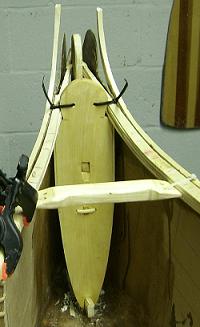
on the manboard and lashes near the top of the stem piece.
The outwale continues rising upward to the upper most part of
the stem where it will be lashed in place. The two end thwarts
are ready to be lashed in place.

|
Installing the stems. The inwale passes over the shoulders on the manboard and lashes near the top of the stem piece. The outwale continues rising upward to the upper most part of the stem where it will be lashed in place. The two end thwarts are ready to be lashed in place. |
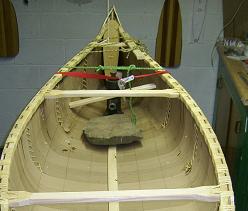
|
|
|
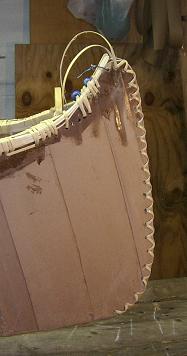
|
Final lashing at outwale ends will be during lashing with the gunwale cap later. The paper around the stem pieces has been trimmed and the paper has been lashed onto the stems. | |
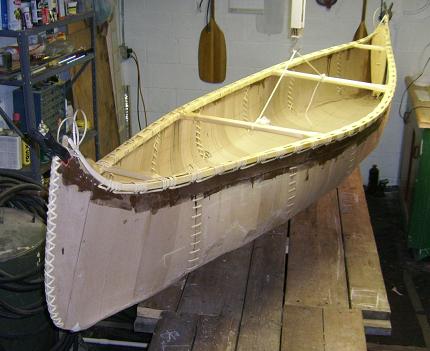
|
out to be 124 inches ( 10' 4" ) in length, it's 28" max. at the gunwales,depth is 11 1/4", and currently weighs 22 lbs. |
|
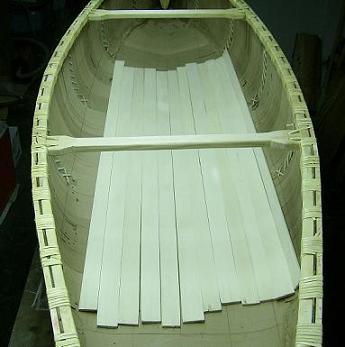
|
The basswood sheathing ready to be added. The sheathing is joined edge to edge with no overlap. Each end is overlapped similar to a scarf joint. | |
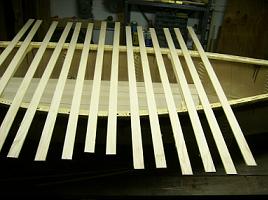
|
Now the ribs can be added. Ash ribs are being used do to the difficulty of bending basswood. | |
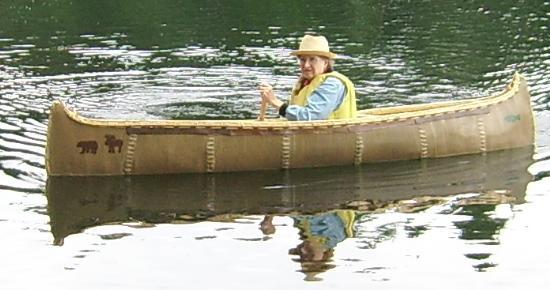
|
|
I finished the hull by coating it with two
layers of marine varnish plus on the bottom I added fiberglass at each stem for about 2 feet. Over the glass I added 3 coats of epoxy with graphite power up to the water line. On this I painted the hull with dark brown paint over which I panted a coat of light brown/tan paint. I let the dark brown paint show through the tan in some places to make the hull look more like natural birch bark. The gores are sealed using pine resin. It's time to work on a seat and paddle for the canoe. |
Previous page................